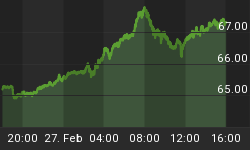In a shocking development, the Treasury Department website is openly stating that as of January 24th 2006 our national debt stood at $8,185.3 billion.
http://www.publicdebt.treas.gov/opd/opdpenny.htm
Yet the US national debt 'ceiling' stands at $8,184 billion - a full billion less. Although called upon by John Snow, congress has not passed an expansion of the debt ceiling and so the US government is now operating in technical default.
You may recall that when last the debt ceiling was approached in the months surrounding the 2004 elections, the Treasury department furiously employed every accounting trick in the book (and then some) to avoid breaching the limit. They even went so far as to take the unprecedented step of borrowing $14 billion from the Federal Financing Bank to cover up the shortfall.
But they never breached the ceiling.
On January 24th they breached it brazenly and openly and with nary an accompanying explanation. Neither have any lawmakers broached this indelicate subject.
I suppose we could write this off as merely an unsurprising development from a government that no longer bothers to even appear to be adhering to rules, laws and procedures, let alone actually doing so.
But the silence is all the more troubling because there is an unprecedented level of government borrowing on the books for 1Q06 with the next 2 weeks (Feb 1st to Feb 9th) an especially busy period of time. An ambitious ~$70-$80b in Treasury paper will hit the market.
As far as I have been able to determine, it is illegal for the Treasury to engage in additional borrowing above the legal debt threshold, so one wonders to what sort of emergency action congress will be forced to engage in to avoid a full-fledged default.
They will probably attach a rider to a "must-pass" defense appropriation bill and ironically title it "The Fiscal Responsibility Amendment of 2006". And if they do, $50 says they do it in the dead of night, on a Friday.
Since the debt ceiling has been raised 50 times over the past 40 years, hoping for some rational debate on the matter would be an extravagant indulgence. Time spent wishing pigs could fly would offer a far better potential return.
Another odd facet of this story is the deafening silence out there in the financial press (and I use that term loosely) regarding this matter. Leaving aside the issue of a technical default, one wonders why nobody is asking any questions about the rate of debt accumulation.
And whether it is sustainable.
The last debt-ceiling adjustment was $800 billion and was passed in November 2004. Now, on January 24th 2006, it is entirely gone. $800 billion in only 16 months for an average of $50B a month.
Factoring out the plundering of excess social security contributions, the US government borrowed $52B in 3Q05, $96B in 4Q05 and expects to borrow $171B in 1Q06. A trend nearly as mind-boggling as the soon to be discontinued M3 series.
Why do I even bother to pen such distressing factoids?
Because in all my time studying economics I have determined only one thing; there's no free lunch. Pay now or pay later but pay we will.
Or, more accurately, we hope that our kids will, and not stiff us for the bill. But if they did, who could blame them?
I, for one, would not be shocked.















